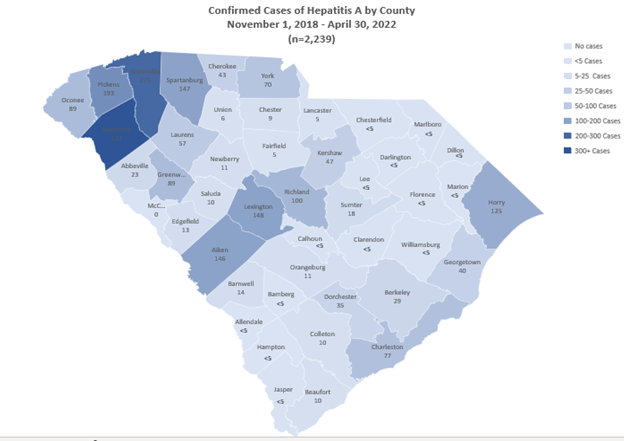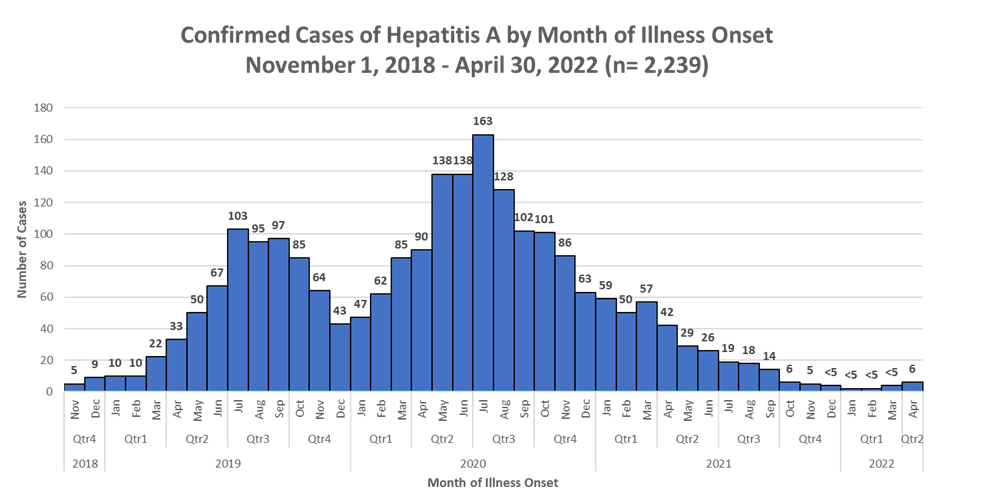
FREE STD/HIV testing on May 18th at most local health department clinics. Please call 1-855-4-SCDHEC to schedule an appointment or click here for a listing of local health departments.
Hepatitis A is a short-term viral infection causing inflammation of the liver. Infection can be prevented by receiving the hepatitis A vaccine.
Most people who get hepatitis A feel sick for several weeks, but they usually recover completely and do not have lasting liver damage. Many children and adults who become infected never develop symptoms, however they can still spread the virus. For those who do have symptoms, they usually develop two to six weeks after being exposed. Symptoms include fever, stomach pain, nausea or vomiting, diarrhea, dark urine and yellow skin (jaundice).
WHAT YOU NEED TO KNOW
How is Hepatitis A Infection Spread?

Most people get hepatitis A by person-to-person contact with someone who has the infection or through eating or drinking food or water contaminated by an infected person. Certain adults may be at higher risk for hepatitis A including persons who use drugs and persons experiencing homelessness.
What if I Think I Have Hepatitis A Infection?

If you think you may have hepatitis A, see your medical provider.
A blood test determines if someone has a hepatitis A infection.
Who Should Get the Hepatitis A Vaccine?

All children aged 12 months to 18 years are recommended to get two doses of the hepatitis A vaccine.
Adults who were not vaccinated as children may be vaccinated at any time.
Hepatitis A Outbreak in South Carolina
Hepatitis A cases began to increase in South Carolina in fall 2018. An outbreak of hepatitis A was declared in Aiken County on Feb. 13, 2019 and DHEC declared a statewide outbreak on May 13, 2019. This outbreak coincided with a national hepatitis A outbreak that began in 2016. Cases have occurred primarily among three risk groups: people who use injection or non-injection drugs, people experiencing homelessness, and men who have sex with men. As the COVID-19 pandemic began, and during the following months, South Carolina continued to see an increase in hepatitis A cases. However, due to continued vaccination efforts by DHEC and partnering agencies, the number of hepatitis A cases began to decline toward the end of 2021 and case numbers have stayed low. Based on data through April 30, 2022, the statewide outbreak of hepatitis A is considered to be over.
- Outbreak-associated hepatitis A data through April 30, 2022 are as follows:
- Total number of cases = 2,239
- Hospitalization = 1,197 (53%)
- Deaths = 8* (<1%)
Note: *Hepatitis A deaths are not a reportable condition; death counts reported here among reported hepatitis A cases are those verified with death records.

